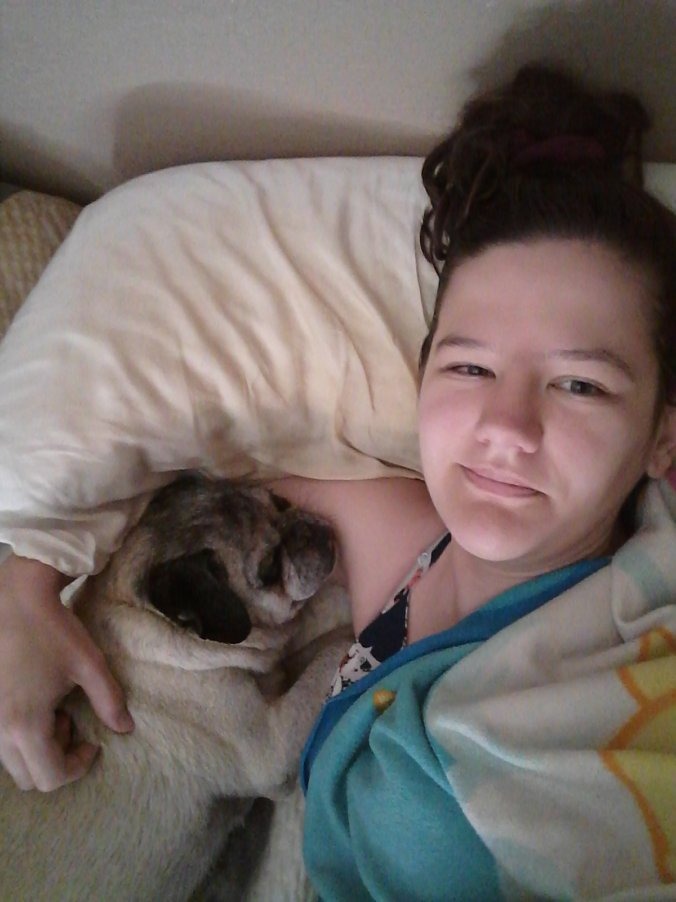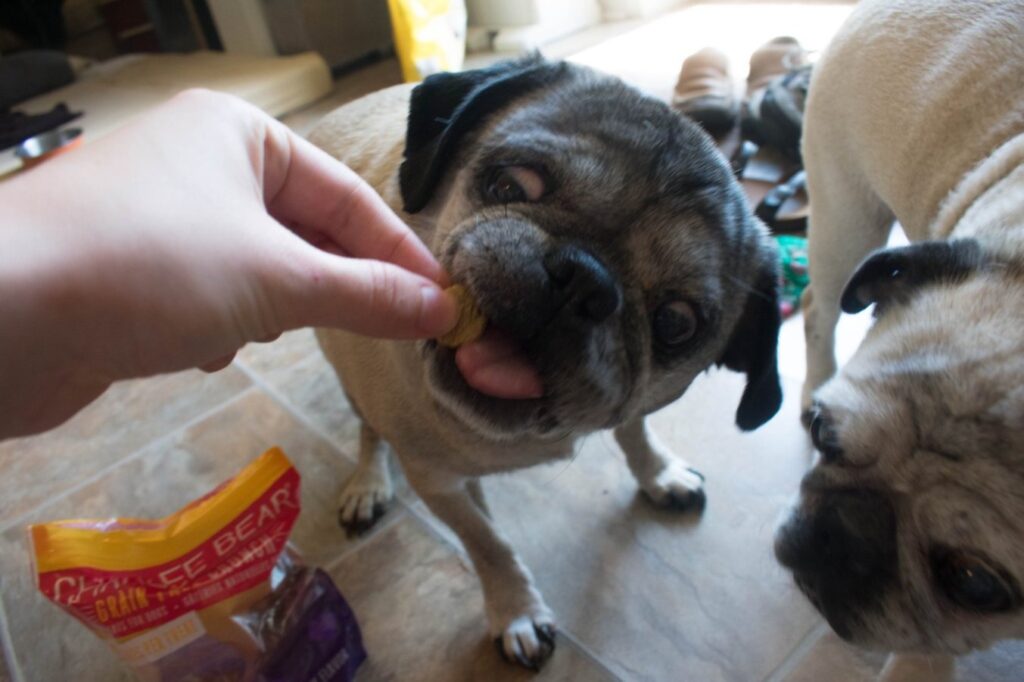
Why is Your Pug Constantly Gagging? Causes, Treatment, and Prevention
Why your pug is hacking, coughing or gagging
Possible causes of coughing, hacking, and gagging in pugs include environmental irritants, allergies, dental problems, heartworm disease, tracheal collapse, and kennel cough.
Hacking, coughing, and gagging in pugs can be caused by a variety of factors, ranging from minor issues to more serious health concerns. Here are some possibilities to consider:
- Environmental factors: Is your pug exposed to second-hand smoke, air pollution, or other environmental irritants? These can all cause respiratory issues that can lead to coughing, hacking, and gagging.
- Allergies: Just like humans, dogs can have allergies to things like pollen, dust, and certain foods. These allergies can cause coughing and gagging, as well as other symptoms like itching and sneezing.
- Dental problems: Dental issues like tooth decay or gum disease can lead to coughing and gagging as your pug tries to clear their throat.
- Heartworm disease: This is a serious health concern that can lead to coughing, hacking, and gagging, among other symptoms. If your pug is not on a regular heartworm prevention medication, this could be a possibility.
- Tracheal collapse: This is a condition that is common in pugs and can cause coughing, gagging, and even difficulty breathing. It occurs when the rings of cartilage in the trachea weaken and collapse.
- Kennel cough: This is a highly contagious respiratory infection that can cause coughing, hacking, and gagging, among other symptoms.

Why some senior pugs gag more as they get older
Senior pugs may gag more as they get older due to respiratory infections, weakened immune systems, dental problems, or tracheal collapse. Obesity can exacerbate issues. Regular check-ups, a healthy diet, and love can help them feel their best.
Just like us humans, our adorable pugs also experience some changes as they get older. One of the most common issues that senior pugs may face is increased gagging or coughing. This can be due to a variety of reasons, including respiratory infections, allergies, or even heart disease. Additionally, older pugs may be more likely to develop dental problems, such as gum disease or tooth decay, which can lead to inflammation and discomfort in the mouth and throat.
Another factor that may contribute to increased gagging in senior pugs is a weakened immune system. As a pug ages, their immune system may become less effective at fighting off infections and other health issues. This can make them more vulnerable to respiratory and gastrointestinal problems that can cause gagging.
Furthermore, as pugs age, they may become less active and more prone to weight gain. Obesity can exacerbate respiratory and gastrointestinal issues, which can lead to increased gagging.
Tracheal collapse is a condition that can affect many senior pugs and cause them to gag more frequently. This happens when the rings of cartilage in the trachea become weakened, leading to the collapse of the tracheal walls and making it more difficult for air to flow through. This can result in coughing, gagging, and difficulty breathing.
But don’t worry, with proper care and management, many senior pugs can still live happy and healthy lives! Regular check-ups with your veterinarian, a healthy diet, and plenty of love and attention can go a long way in keeping your senior pug feeling their best.

How to reduce gagging in pugs
To reduce gagging in pugs, ensure a high-quality diet, use a slow-feed bowl if eating too fast, keep them hydrated, limit over-excitement during playtime, schedule regular vet check-ups, and use a harness instead of a collar.
Here are some tips to help reduce gagging in your furry friend:
- Check their diet: Pugs are known for having sensitive stomachs, so it’s important to make sure they’re eating a high-quality diet that agrees with them. Avoid feeding them table scraps or anything that could upset their tummy.
- Slow their intake: Pugs can be little pigs who don’t know their own limits. They can eat too fast causing themselves to gag. If this is happening, consider purchasing a slow-feed bowl.
- Keep them hydrated: Dehydration can lead to gagging and other health issues, so make sure your pug always has access to fresh water. You can even add some low-sodium chicken broth to their water to make it more appealing.
- Avoid over-excitement: Pugs are notoriously excitable, but too much excitement can lead to gagging or even vomiting. Keep playtime and exercise sessions short and sweet to avoid triggering a gag reflex.
- Get regular check-ups: Regular visits to the vet can help catch any potential health issues before they become serious. Your vet can also give you tips on how to reduce gagging in your pug and recommend any necessary treatments.
- Use a harness, not collar: Pugs are brachycephalic dogs, which means they have a shortened airway that can make breathing difficult. Using a harness instead of a collar reduces pressure on their neck and make breathing easier.
With these tips in mind, you’ll hopefully be able to reduce gagging in your pug and keep them happy and healthy. Remember, if you’re ever unsure about your pug’s health, always consult with a veterinarian for professional advice.
https://youtube.com/shorts/sLiF4hqtc4A?feature=share
When to go to the vet for coughing or gagging
If your dog’s coughing or gagging persists for more than a few days, if they’re lethargic or losing their appetite, or if they’re displaying other symptoms like wheezing or difficulty breathing, go to the vet.
It can be tough to know when your dog’s cough is just a minor annoyance or a sign of something more serious.
While coughing and gagging can be caused by a variety of factors, there are a few red flags that indicate it might be time for a trip to the vet. Here are a few things to look out for:
- Frequency and duration: If your dog’s coughing or gagging persists for more than a few days, or if it’s happening frequently throughout the day, it’s probably time to see a vet.
- Changes in behavior: Is your dog acting lethargic, losing their appetite, or avoiding playtime? These could all be signs that something is not right, and a trip to the vet might be necessary.
- Other symptoms: Are you noticing any other symptoms, like fever, wheezing, or difficulty breathing? These are all indications that there could be an underlying health issue that needs to be addressed.
- Age and breed: Some breeds are more prone to respiratory issues than others, and age can also be a factor. If your dog is a senior or has a history of respiratory problems, it’s especially important to be vigilant about coughing and gagging.
Of course, every dog is different, and it’s always better to err on the side of caution when it comes to their health. If you’re ever in doubt, it’s always a good idea to reach out to your vet for guidance.

Leave a Comment